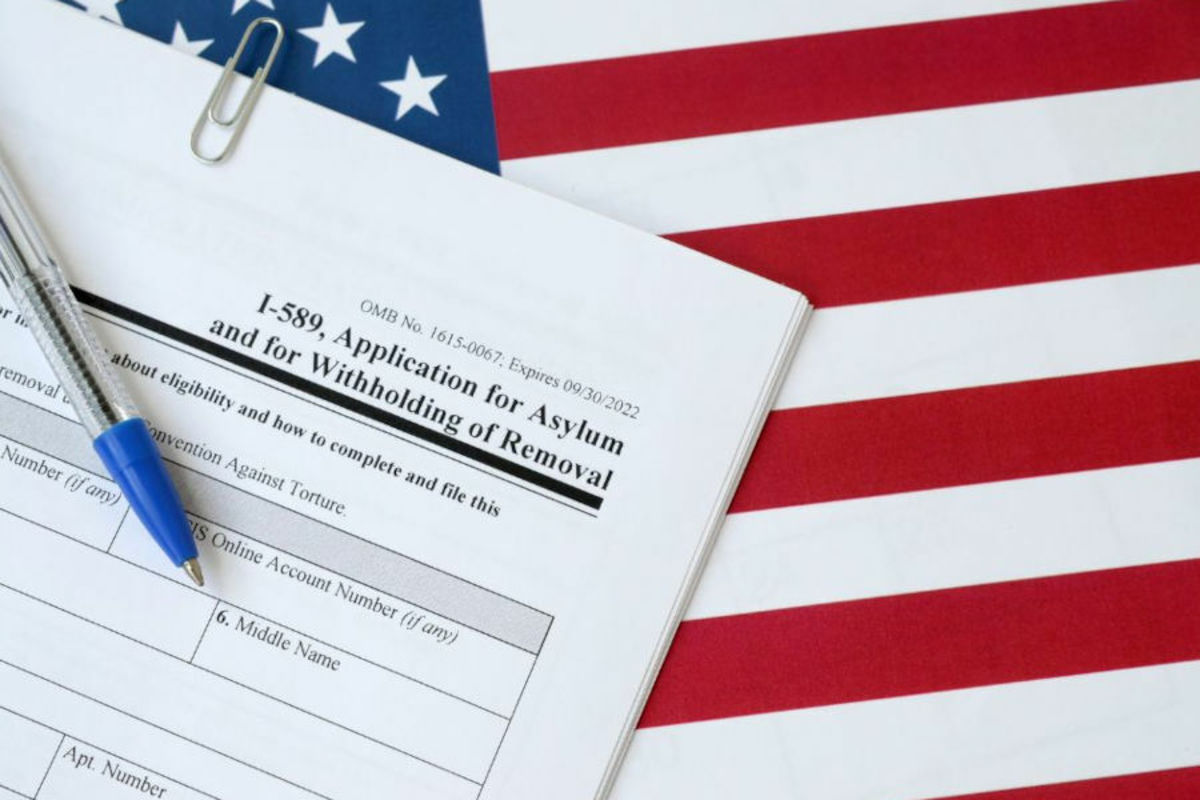AZ/Arizona SB1070, Civil Right, and Double Jeopardy: Is Not Carrying ID and or Green Card Legal? What is the Punishment?

Introduction
On my other SB1070 hubs, a reader, Don, brought up an interesting line of thought. Because Arizona's SB1070 proscribed additional penalties for unauthorized / illegal immigrants/aliens, it subjected them to "double jeopardy", and therefore SB1070 is illegal.
My initial reaction is to dismiss it out of hand. However, my curiosity impelled me to do a bit more research, and the effort was worth it, as I rediscovered a few things, clarified a few things about immigration law and there enforcement, and ultimately provided an answer to overall questions.
First of all, let us examine...just what is double jeopardy, when we're NOT talking about the game show?
Double Jeopardy
So what is double jeopardy? Double jeopardy is intended to prevent the government from harassing the citizen by repeated charging him or her with the same crime over and over, or to punish him/her more than once for the same crime.
Double jeopardy in the US is codified by the Fifth Amendment. It can be summarized in three parts
* no re-try, if there was a final acquittal
* no re-try of conviction, unless conviction was reversed, vacated, or otherwise nullified
* no punishment multiple times for same offense
However, it also has three notable exceptions
* fraudulent trials do not count as an acquital or conviction
* separate sovereigns can bring separate charges, even if it's the same crime
* different legal standards count separately
It is the latter two exceptions that we are interested in.
So what does separate sovereigns mean? In the US government, the Federal government is one sovereign, but each state is also its own sovereign. If a crime has multiple jurisdictions, different sovereigns can file its own charges, and it would not be double jeopardy, even though only one crime was committed.
The Wikipedia gave an example: Army Master Sergeant Tim Hennis was acquitted of murdering his wife and two daughters in 1985 in their home in North Carolina. He cannot be tried again under North Carolina law, as that would be double jeopardy. However, 2 decades later, he was recalled to duty, court-martialed for murder, and convicted under Federal law. As Federal law is a separate sovereign, it is not double jeopardy.
Different legal standard basically means criminal, vs. civil, vs. lower. Basically means a civil trial is separate from a criminal trial. Being acquitted from a criminal trial will not protect you from a civil trial due to double jeopardy. The most famous example is OJ Simpson. OJ Simpson was acquitted of murdering his ex-wife and another man. However, he lost the civil "wrongful death" trial for the same deaths, and was ordered to pay a huge sum.
Unauthorized Immigrants: Federal Charges
In 2007, a US attorney, making a speech, explained what sort of crimes will an unauthorized immigrant face from the Federal government: there's "illegal entry", and "unlawful presence", plus a few misc. ones.
Illegal entry is simple: it is illegal to cross the US border without going through the proper channels (i.e. through customs, at border control points, etc.). If you enter the US without going through the proper channels, you have committed "improper entry by an alien",Title 8 of the U.S. criminal code, punishable by a fine of between $50
and $250 and/or a maximum of six months in jail. (8 USC 1325)
There is a second charge that is used far more often: called "unlawful presence". It is a civil offense, not a violation of the U.S. criminal code. A person cannot be sent to
prison for being in the US without authorization from US immigration
authorities. It is, however, a violation of civil immigration laws, for
which the federal government can impose civil penalties, namely
deportation.(8 USC 1182 (a) (9) (B) )
Keep in mind that the "unlawful presence" charge is used 95-99% of the time. Illegal entry is usually only brought against individuals when they are caught sneaking across the border in the act. Most prosecutors found that additional burden of proof too troublesome, and instead settle for the civil penalties, namely deportation, of "illegal presence" instead.
Also keep in mind that if a person overstays their welcome (i.e. visa), they are also considered unauthorized immigrant. For example, they have a student visa, but when it expired they don't leave. They are unauthorized immigrants upon expiration of their visa, even though they had entered the US legally.
It is also a crime to fail to register as an alien (i.e. not getting entry visa) (8 USB 1306(a) ) and alien fail to carry immigration documentation (8 USC 1304(e) ) (i.e. not carrying green card or passport w/ visa).
Arizona's addition and its effects
Arizona SB1070 mirrors Federal civil immigration law, by making non-citizens not carrying required documentation a misdemeanor. In other words, it tacked on a state penalty for a Federal civil crime: namely, not carrying documentation and not registering, violations of US civil immigration laws, specifically 8 USC 1306 (a) "willful failure to register", and 8 USC 1304 (e) not having registration card. The penalty is $100 for first offense (lowered by the revision HB2162, SB1070 actually had it set at $500), and no more than 20 days in jail (first offense).
Is this $100 fine (which has NOT gone into effect yet, as it only goes into law 90 days after session), conflicting with Federal law, and thus be pre-empted by Federal law? It depends on what the penalties for 8 USC 1304 is.
According to 8 USC 1304 " Any alien who fails to comply with the provisions of this subsection shall be guilty of a misdemeanor and shall upon conviction for each offense be fined not to exceed $100 or be imprisoned not more than thirty days, or both."
Thus, HB2162 has revised SB1070 to match, and not exceed the Federal penalties.
Next question... is this double-jeopardy? Can you be punished twice for the same crime?
According to the earlier exception of separate sovereigns, the answer is no, it is not double jeopardy, because state and federal laws are considered two separate sovereigns, unless the two laws conflict, in which case one set of law will pre-empt the other. In this case, as the laws match exactly, there is no pre-emption.
In any case, even if a court is to find this penalty to be double-jeopardy, the court can simply strike down the penalty, but leave the law itself intact. In any case, this is but a tiny section of the overall law package.
Local police and immigration law
One of the most often objections from various protesters is local police do not have the power to enforce immigration laws, as that is a Federal power. They are actually quite wrong.
Here is a link to a US Justice Department website, that explains that powers do local and state police have when it is regarding detain and arrest of aliens. And it is quite extensive.
http://www.justice.gov/usao/eousa/foia_reading_room/usam/title9/crm01918.htm
There are PLENTY of things a state trooper and local police can do when it comes to arresting unauthorized aliens.
Conclusion
I am not a law student or a lawyer, but it appears to me that the double-jeopardy argument is also doomed for failure, and even if it is NOT doomed, it is but a tiny bit of victory, unlikely to cause the entire bill to be defeated.
More AZ SB1070 information
- Immigration Dilemma: should ALL native-born be citiz...
Immigration reform idea: a new class of immigrant? Should there be provisional residencies? Should children of illegal immigrants be provisional residents instead of citizens? - Arizona Senate Bill 1070: what is it really?
The national controversy about the new Arizona law, SB 1070, which modifies the immigration enforcements of Arizona law, is all over the place. Do you know what it really says and what are the complaints about? - Why Court Challenges to Arizona SB1070 will fail
Do you know why court challenges to Arizona's SB1070 are doomed? That's right, ACLU and others will lose. The AZ laws have been carefully written to defeat challenges. Find out why. - Racial Profiling and the Arizona SB 1070 Law
Racial profiling: the new Arizona immigration law is accused of doing it. What is racial profiling, are there different types, how it is related to the AZ law, and how can it affect you?








